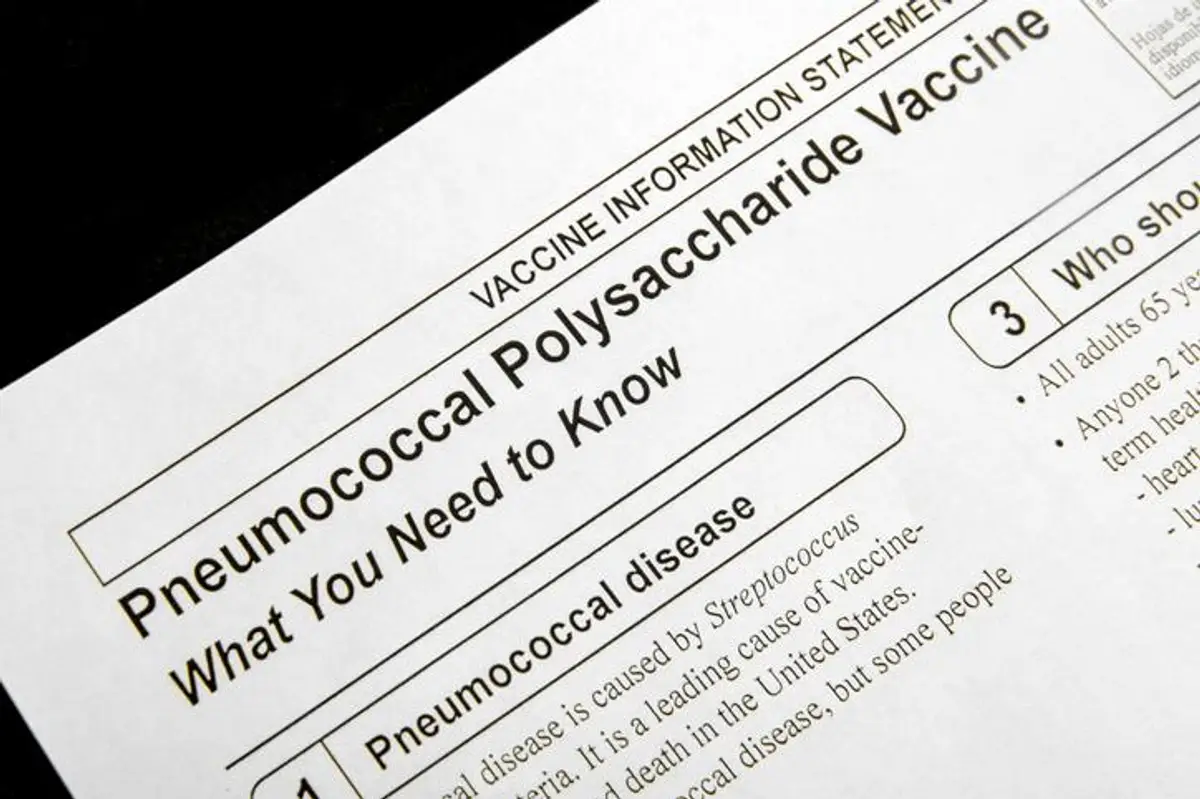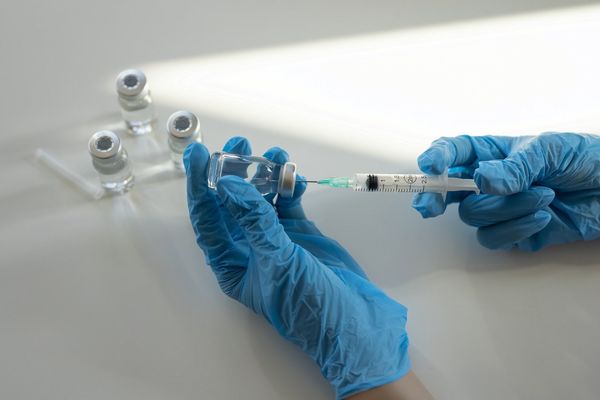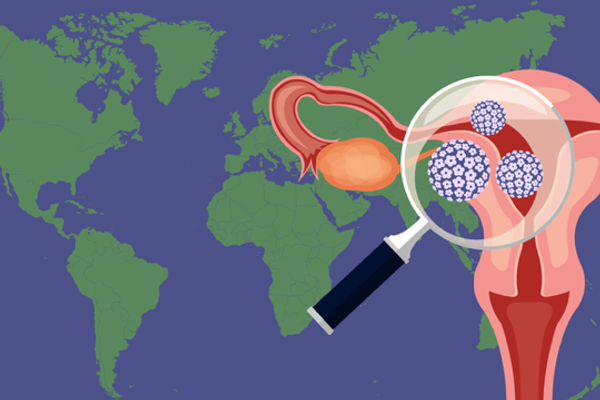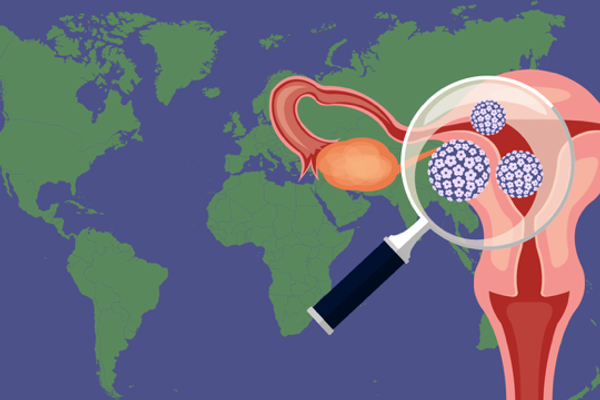It’s cold and flu season and you may have heard the term “pneumococcal disease” going around. Pneumococcal disease is caused by bacteria and can lead to serious medical complications and even death. With that in mind, HealthyWomen reached out to Mary Koslap-Petraco, DNP, an expert in immunization practice and an advisor for the Centers for Disease Control and Prevention (CDC), to find out more about pneumococcal disease.
How common is pneumococcal disease?
Pneumococcal disease is a common disease that affects approximately 1 million people a year and sends approximately 150,000 of them to the hospital. According to the National Foundation for Infectious Diseases, one in 20 people who are hospitalized with pneumococcal disease die each year.
What is pneumococcal disease?
Pneumococcal disease is any infection caused by bacteria called Streptococcus pneumoniae or pneumococcus. Pneumococcal infection is the most common cause of pneumonia, which is a serious infection of your lungs.
What are the types of pneumococcal disease?
There are numerous types of infections caused by pneumococcus — some of which are life-threatening. In addition to pneumonia, the most serious are an infection of the spinal cord and brain (meningitis), an infection of the blood (bacteremia) and sepsis (an extreme response to an infection). Milder conditions include inner ear infections and sinus infections. It’s possible to have more than one type of pneumococcal infection at the same time.
How does pneumococcal disease spread?
Pneumococcal disease spreads through close contact, coughing and sneezing. It’s possible to carry the bacteria in your nose and throat and spread it to others, even if you don’t have symptoms. This is especially true of children.
What are some symptoms of pneumococcal disease that I should look for?
Pneumococcal disease usually starts out like a cold or stuffy nose, with many people experiencing a combination of symptoms including headache, stiff neck, ear pain, chest pain, sore throat, fever, chills, difficulty breathing and sensitivity to light. The symptoms you experience depend on where the infection occurs in your body.
Pneumonia (infection of the lungs)
- Fever and chills
- Cough
- Rapid breathing or difficulty breathing
- Chest pain
Meningitis (infection of the lining of the brain and spinal cord)
- Stiff neck
- Fever
- Headache
- Sensitivity to light (called photophobia)
- Confusion
- Low alertness, poor eating and drinking and vomiting (in babies)
Bacteremia (infection of the blood)
- Fever
- Chills
- Low alertness
Sepsis (infection of the blood)
- Confusion or disorientation
- Shortness of breath
- High heart rate
- Fever, shivering or feeling very cold
- Extreme pain or discomfort
- Clammy or sweaty skin
What are the risk factors for pneumococcal disease?
Anyone can get pneumococcal disease but young children and the elderly are especially vulnerable. People of any age who smoke or have certain medical conditions are also more at risk. These conditions include:
- Chronic heart disease
- Lung disease
- Kidney or liver disease
- Diabetes
- A weakened immune system due to HIV, certain cancers and medications
Does my race put me at a higher risk for pneumococcal disease?
Race is not a risk factor in pneumococcal disease. However, populations with low vaccination rates, including Black and Hispanic people, may be at higher risk of infection.
What are the treatments for pneumococcal disease?
Antibiotics are commonly used to treat pneumococcal disease. However, due to antimicrobial resistance (AMR) some strains have become resistant to antibiotics.
What are the types of vaccines for pneumococcal disease?
In the United States, we have two kinds of pneumococcal vaccines to help protect against pneumococcal disease.
- Pneumococcal conjugate vaccines (PCV13, PCV15 or PCV20)
- Pneumococcal polysaccharide vaccine (PPSV23)
All of the vaccines are safe, but some people experience side effects. The CDC recommends that all children under 5 years of age and children ages 2 to 18 with certain medical conditions get vaccinated. The CDC also recommends vaccination for adults over 50 who were not vaccinated as children and adults ages 19 to 49 with risk factors or certain medical conditions. Some people may need multiple boosters, so it’s important to discuss your vaccine status with your healthcare provider (HCP).
How do I know if I need the pneumococcal disease vaccine?
As with all vaccines, it’s best to talk with your HCP to determine if you need the vaccine.
You may also want to look at the CDC’s PneumoRecs VaxAdvisor mobile app — designed to help providers determine if a patient needs the pneumococcal vaccine, which vaccine and when. It’s available to everyone for free on mobile devices and in this desktop version.
Where can I get the pneumococcal disease vaccine?
PCV13 or PCV15 is part of the routine vaccination schedule for children and is usually available at HCP’s offices, community health clinics and public health departments.
Adults who determine with their HCP that they should be vaccinated can receive the vaccination at their HCP’s office. If it’s not available or there is a waiting list, the vaccine may be available at pharmacies, community health clinics and health departments, community centers and even workplaces.
This resource was created with support from Merck.
- What Is Pneumococcal Disease? ›
- Vaccine Education Program ›
- Adults Need Vaccines, but Not Everyone Gets Them ›
- 10 Vaccines Adults Should Get ›







